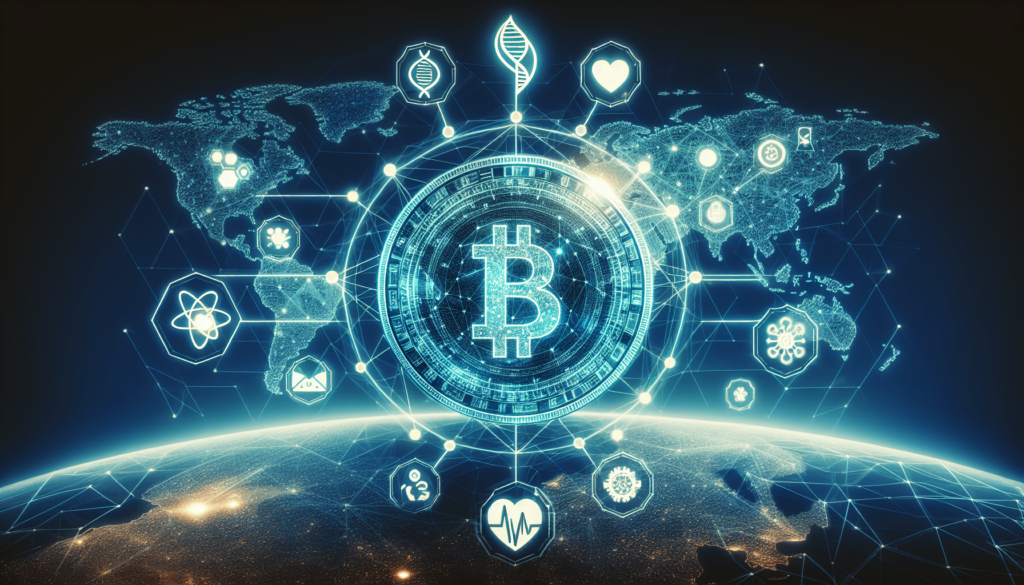Have you ever wondered how cryptocurrency could play a role in addressing global health security challenges? With the rise of digital currencies and blockchain technology, new opportunities have emerged beyond the realms of finance and investment. One of those exciting opportunities is the potential for improving global health security.

Understanding Global Health Security
Global health security involves the protection of populations worldwide from health threats, whether natural or man-made. It encompasses a wide range of challenges, from infectious diseases to natural disasters, and requires international collaboration to effectively manage these risks. As our world becomes more interconnected, the necessity to bolster health security across borders is paramount.
The Current Challenges
Today, many regions face numerous obstacles when it comes to health security. These can include inadequate healthcare infrastructure, limited access to resources, and a lack of rapid response systems during health emergencies. Moreover, the bureaucratic inefficiencies and corruption in certain health systems can exacerbate these issues, leaving millions vulnerable to health crises.
The Role of Technology in Health Security
Technology offers promising solutions to enhance global health security. From telemedicine to AI-driven diagnostics, tech innovations are changing how healthcare is delivered and managed. However, one of the most groundbreaking technological frontiers in health security remains relatively unexplored: cryptocurrency and blockchain technology.
How Cryptocurrency Can Enhance Transparency and Efficiency
Cryptocurrency, grounded in blockchain technology, provides a transparent and secure method for conducting transactions. This inherent transparency can play a crucial role in curbing corruption and ensuring that funds allocated for health initiatives are used appropriately.
Utilizing Blockchain for Tracking Funds
Blockchain enables the creation of immutable records, making it ideal for tracking how financial resources are distributed and spent. When governments and NGOs allocate funds for health initiatives, using blockchain can ensure these resources reach their intended destinations without being siphoned off along the way.
Reducing Fraud through Decentralization
Traditional centralized systems are often vulnerable to fraud due to information asymmetries and human error. By leveraging the decentralized nature of blockchain, health organizations can reduce fraud risks. Each transaction is validated by multiple nodes in the network, creating a difficulty for any fraudulent activity to go unnoticed.

Efficient Donation Systems Using Crypto
Cryptocurrency can streamline the process of donating funds to health causes, making it simpler and faster for donors to contribute to health-related initiatives across the globe. Unlike traditional financial systems, cryptocurrencies can often bypass restrictions and reach places that are otherwise difficult to access.
Crypto Donations During Emergencies
In times of health crises, speed is critical. Cryptocurrencies can significantly reduce the time it takes for donations to be processed and delivered. If traditional avenues are bogged down by red tape, crypto donations can swiftly make their way to affected areas, providing timely relief.
Enhancing Trust with Donors
Many donors might be hesitant to contribute due to fears of their contributions not being used effectively. With blockchain, they can trace their donations, thereby enhancing trust and potentially encouraging more people to contribute to global health security efforts.
Smart Contracts for Supply Chain Management
Smart contracts, another application of blockchain, can revolutionize the way health supplies are managed and distributed. These self-executing contracts with the terms of the agreement directly written into the code ensure that all parties involved honor their commitments.
Automating Health Supply Deliveries
Through smart contracts, delivery of medical supplies can be automated, reducing delays and human errors that are often prevalent in traditional supply chains. For instance, upon fulfilling predefined conditions, a smart contract can automatically trigger the release of payments once a delivery confirmation is recorded.
Ensuring Fair Trade and Reducing Costs
With each transaction recorded on a blockchain, smart contracts can ensure that entrepreneurs are paid fairly and on time, reducing operational costs and improving efficiency. This can lead to reduced prices and increased access to essential medical supplies, particularly in under-resourced regions.
Global Collaboration and Data Sharing
Utilizing blockchain, medical data can be shared securely and efficiently between countries without compromising patient privacy. This can enhance global collaboration, allowing experts worldwide to access crucial information during pandemics or other health emergencies.
Overcoming Data Silos
Traditionally, healthcare data has been marred by fragmentation and discrepancies due to differing systems and lack of standardization. Blockchain can address this by providing a unified, transparent ledger for health data that various stakeholders can trust and rely on.
Improved Epidemiological Tracking
Real-time access to accurate data can improve epidemiological tracking and intervention strategies. When outbreaks occur, having the capability to swiftly analyze and respond to emerging threats can save lives and contain the spread of disease.
Challenges and Considerations
While the potential benefits of using crypto for global health security are immense, several challenges and considerations need to be addressed to maximize its effectiveness.
Adopting New Technologies
There is often resistance to adopting new technologies, particularly those that seem complex or unfamiliar. Education and awareness campaigns are essential to help stakeholders understand the value and functionality of cryptocurrencies and blockchain in the health sector.
Legal and Regulatory Hurdles
The legal landscape for cryptocurrencies is still evolving. Different countries have varying stances on how these digital assets should be regulated. It will be crucial to develop international standards and regulations that enable the use of crypto for health security while ensuring compliance and security.
Technological Barriers
Infrastructure limitations, such as inadequate internet access in remote or impoverished regions, can hinder the implementation of crypto-based solutions. Overcoming these technological barriers requires investment and innovation to ensure equitable access to these digital tools.
Conclusion
Cryptocurrency and blockchain technology hold transformative potential for global health security. By offering transparency, efficiency, and enhanced collaboration, these digital tools can address some of the most pressing challenges in our healthcare systems. While there are hurdles to overcome, the innovative use of these technologies could pave the way for a more secure and equitable health future for all. As you ponder the possibilities, consider how both technology and human ingenuity can work in tandem to tackle the complex issues of global health security.

